
Framing the past: How Jamaican-born Rose Harvey captures home in Miami
Listen to the Story
Click here for audio transcript
Rose Harvey:
When I think about home, memory is what come to my mind.
I started photographing, because I want to see my family. Because I can remember them.
I thought the kids, everybody seems to like it, and I show it to them. The pictures.
I don’t consider Miami my home.
Well, it don’t really feel like home. My home is my home.
That’s my country. That’s where I was born.
My name is Rose Harvey from Jamaica, Askenish.
Garden bush, Elliott bush. ‘Cause it come under the same place.
The land will have like a mountain, up the top. And like on the bottom have less trees and we can dig the soil and plant stuff like breadfruit tree, pear trees, bamboo plant, breadfruit plant. Bananas.
The spring water come from the mountain, and it tastes very icy and fresh.
With the property, you have, like, one river is here, and the land in the middle, and next river is here, the land in the middle, and next river there, and the land.
It was my grandfather land.
I wouldn’t say it’s a farm, part of it bigger. Part of it like the mountain at the top and down the bottom is like farming.
(coughs)
Well, the house was made from like board, board houses, and like a zincy top.
I come into Florida. I think ’82. I come to Miami.
I was 40 something. 45, something like that.
Why we leave, because we feel like we want to travel. And get a little bit more money in the pocket.
(laughs)
Well, it was nice coming there, but at home you still miss home. Don’t care what you miss home sometimes.
Miami, I haven’t missed anything, but it’s just not home.
When I went to Jamaica, I traveled dry season.
Everything changed.
It was more quieter. Now, the post office is gone. The stores, them close up, some of them. The church, they built a new church.
The land is still there. It cannot be moved. (laughs) It’s still there.
A lot of the people them died. My grandfather died, my mother end up died lately. Sisters them died, uncle died. Nearly everybody died.
Over time, the wood them start to get decay. They lose the house, because there’s nobody living in them anymore. Because there’s not much people to take care of it like before.
That’s why I take the photograph, because I can’t even ta- see them on the photograph.
I look at them sometimes. When I miss home. (laughs)
I feel good to see them.
What is the meaning of
home?
Rahe-Wanitanama speaks with Rose Harvey, a Ciboney Taíno photographer from Askenish, Jamaica. Moving to South Florida in 1982 for better opportunities, Harvey never forgot her roots, regularly supporting her Jamaican family. Her photographs, from Askenish’s lush landscapes to Miami’s lively streets, are more than images. They weave a narrative across two cities and cultures, blending memories of Jamaican traditions with Miami’s energy. Rose’s lens reminds us that our home is anchored in cherished memories and bonds, regardless of geography.
“Why I take photographs,” Rose Harvey muses, “is to keep home close.”
At age 86, Harvey has lived in Miami for over four decades. However, the essence of her birthplace lingers in her soul. The rhythms of her Jamaican-born Ciboney Taíno heritage pulse strongly within her.
Born amidst the natural beauty of Askenish, a village nestled amidst bountiful nature, Harvey’s upbringing was firmly rooted in family traditions. Garden Bush, one of several clan family plots surrounding the village, was originally owned by her grandfather James Elliott and epitomized these traditions. Passed down through generations, Garden Bush became a shared space for her mother Amelia, aunt Ellen and uncle James.
Because she wanted to travel, and “get a little bit more money in the pocket,” Harvey left Askenish in 1982 for the United States. For many young individuals seeking financial stability, the options often boil down to working in Kingston or moving abroad. Migrating to Miami was a significant transition for Harvey. Upon settling in the U.S., Harvey took up a role as a caregiver, consistently sending a portion of her earnings back to support her family in Askenish.
While her new life brought many changes, Harvey remained anchored to her homeland through a powerful medium: photography.
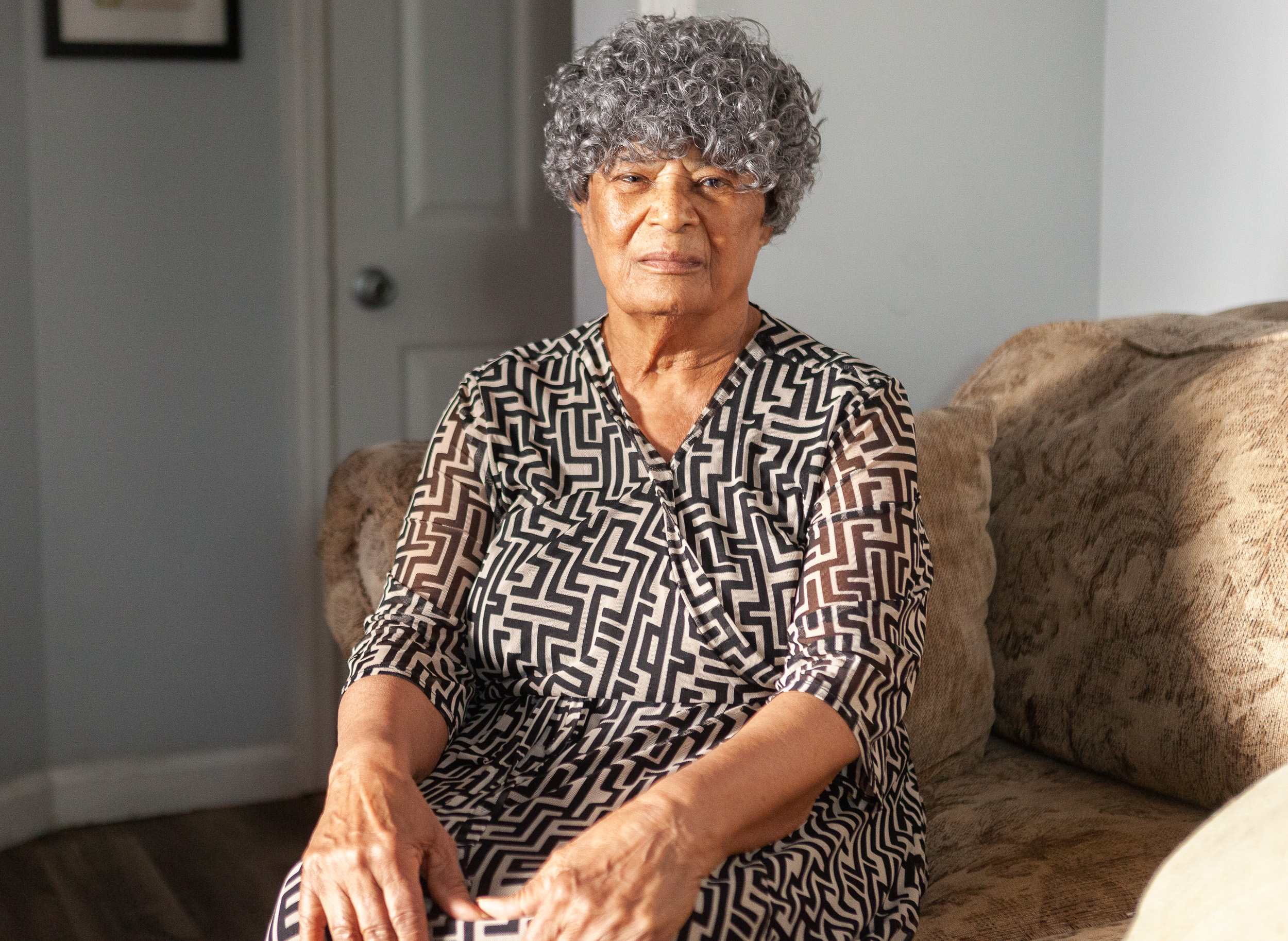
Rose Harvey, 86, sits thoughtfully in her South Florida home on Monday, October 2, 2023. Despite the physical distance, her enduring connection to Askenish remains evident, as reflected in her heartfelt sentiment, “I may be far away, but my heart is always with home.” RAHE-WANITANAMA / NEXTGENRADIO
“Why I take photographs…is to keep home close.”

SHIDEH GHANDEHARIZADEH / NEXTGENRADIO
“I look at them sometimes,” she says, reflecting on her pictures, “when I miss home.” She began capturing images driven by a yearning for the familiar faces and places of Askenish.
Simple pleasures marked Harvey’s childhood. She was comforted by the aroma of traditional dishes like chocolate tea and bammy wafting through the air. Mornings with her cousins included caring for chickens, goats and pigs, and fetching spring water from the nearby mountain stream, followed by scenic walks to school under a canopy of breadfruit trees.
She still remembers how the mountain spring water tasted — “icy and fresh” — and she lovingly recalls her mother’s meticulous method of making chocolate tea.
“You pick the chocolate from off the tree when it’s ripe,” recites Harvey. “You break it, put it on a piece of zinc like two days. And when it’s dry, you put it into a hot frying pan and get the skin off it. And then she beat it into a mortar and she roll it into the chocolate before boiling it.”
However, Harvey’s youth was not always so picturesque. She vividly remembers discovering her biological father’s grave while innocently playing ball.
“Well, maybe when I was six or seven … My brother-in-law said, ‘Girl, you are chopping down your father’s grave.’ I said, “No, you are my father.” It wasn’t until then that she understood the tragic circumstances of her father’s early departure. At the time of his sudden death, Harvey’s mother was eight months pregnant. Her eldest sister’s husband, from a neighboring clan family, became her adoptive father. It was after this revelation that it became clear to Harvey that family is synonymous with community.
Harvey’s photos paint vivid stories. Every snapshot is a cherished memory — from her sister-in-law humorously trying to cook with a banana in hand, a scene that paints a picture of everyday life, to her niece’s daughter visiting, an image that carries the familiarity of gatherings in her beloved village. These photographs, teeming with laughter, warmth and familial bonds provide Harvey solace, offering a comforting refuge amidst her bustling Miami life.

SHIDEH GHANDEHARIZADEH / NEXTGENRADIO
No matter where she is, Askenish remains Harvey’s true home, its familiar sights, sounds and scents irreplaceable. Her photographs aren’t just about the past. They are windows to her life’s journey, intertwining her Askenish origins with her Miami experiences.
“I don’t consider Miami my home; it doesn’t really feel like home. I feel like I’m home once I reach Jamaica,” Harvey says. “That’s my country. That’s where I was born.”
Despite living for over four decades in Florida, Harvey invariably gravitates back to Askenish. Journeying back to Jamaica every six months, especially during the dry season, which includes Christmas and Easter, her returns make for nostalgic reunions.
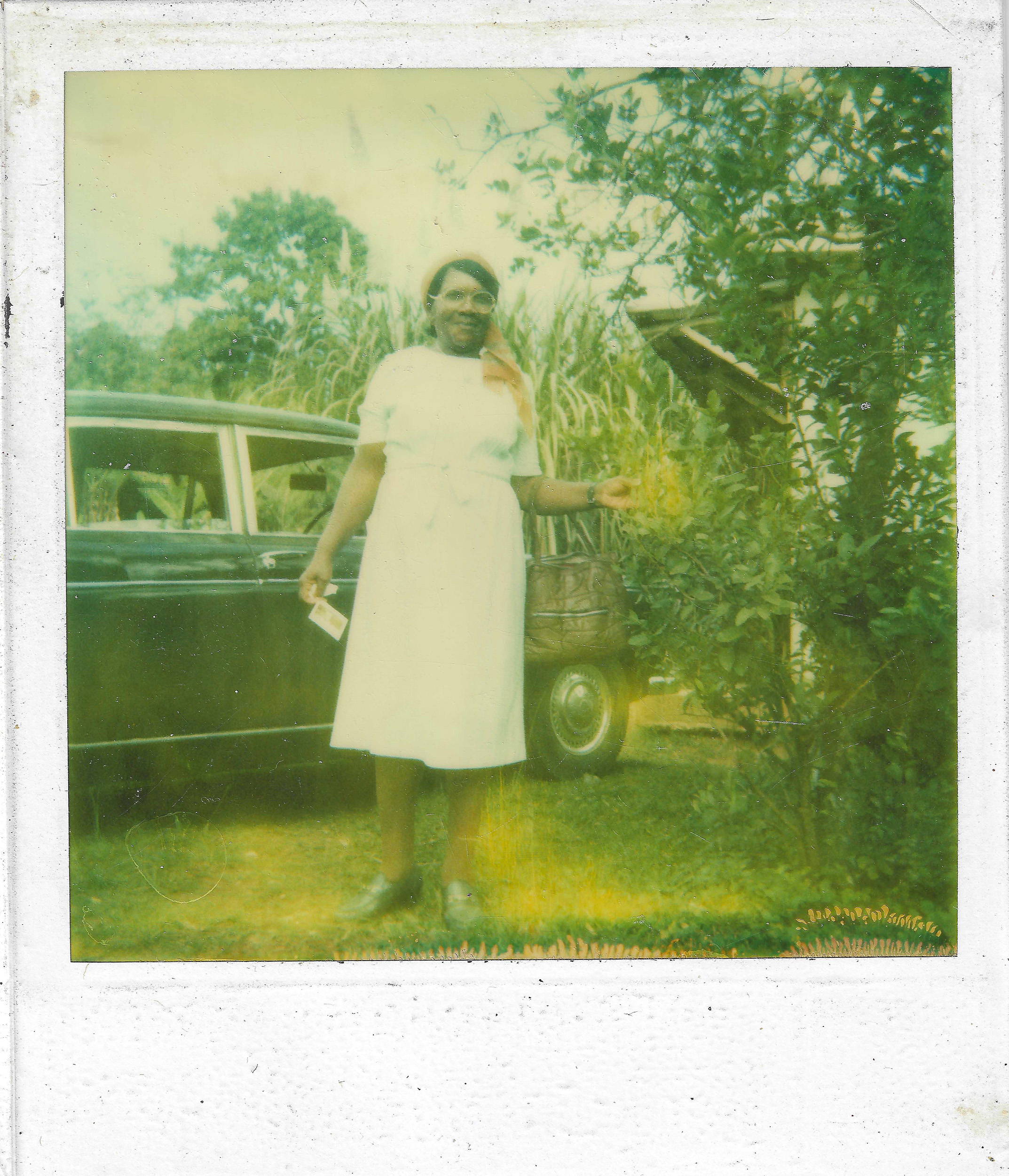
Harvey’s sister, Sylvia, prepares for a long-distance journey to Kingston, where vital community documents are stored. This photograph captures a moment before she departs from Askenish, where the convenience store served as a pit stop for her journey. “When I think of home,” commented Harvey, while holding the image of her sister, “the first image that comes into my mind is seeing my family.” This photograph was taken in Askenish, Jamaica, circa the 1980s.
PHOTO COURTESY OF ROSE HARVEY /AMELIA WILHELMINA ELLIOTT-HARVEY ESTATES / NEXTGENRADIO
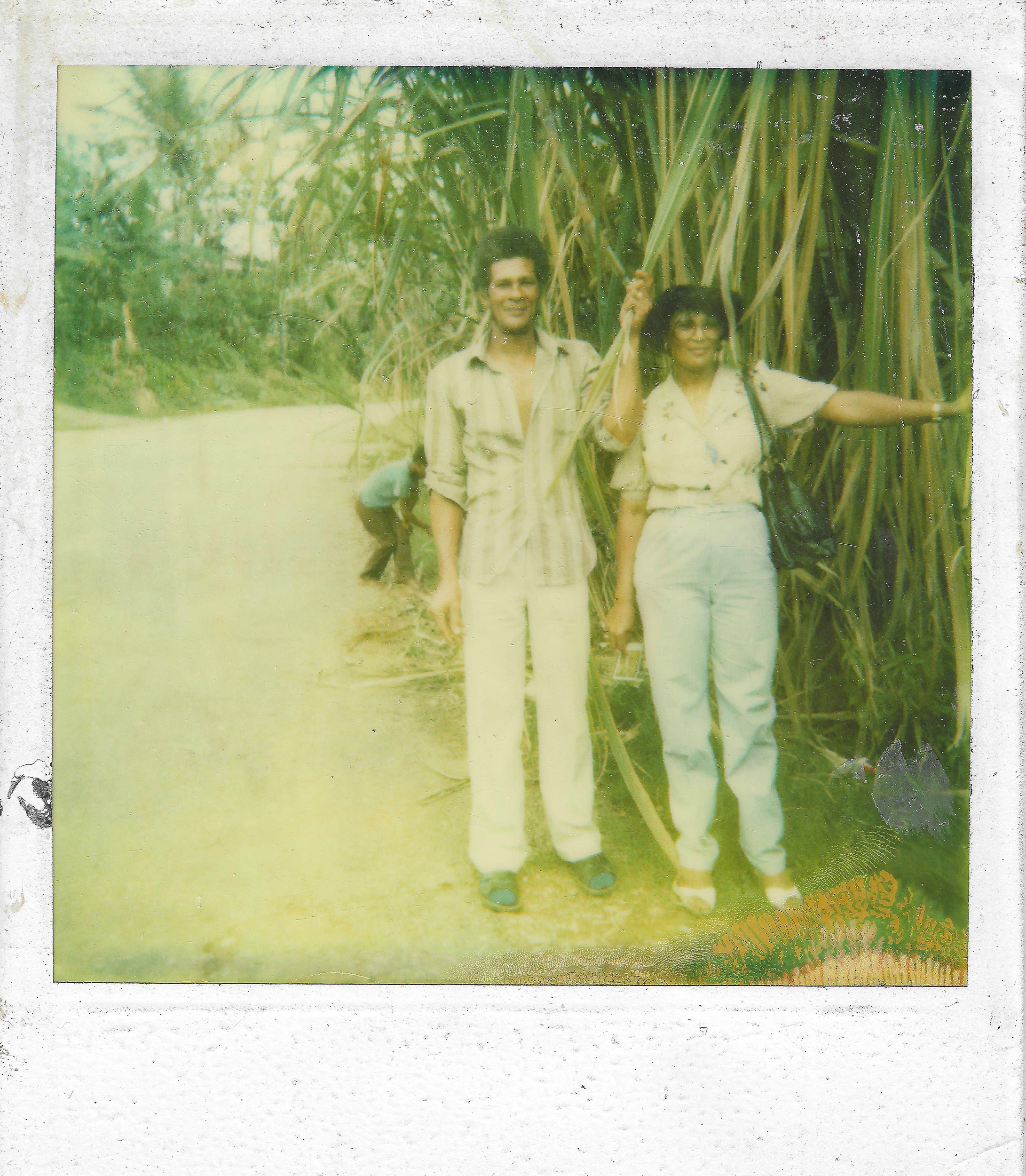
Rose Harvey (right) collects sugar cane with her brother, Alva (left), for their mother. “This is my brother and me by the sugar cane plants. It was a lovely day.” This photograph was taken in Askenish, Jamaica, circa the 1980s.
PHOTO COURTESY OF ROSE HARVEY /AMELIA WILHELMINA ELLIOTT-HARVEY ESTATES / NEXTGENRADIO
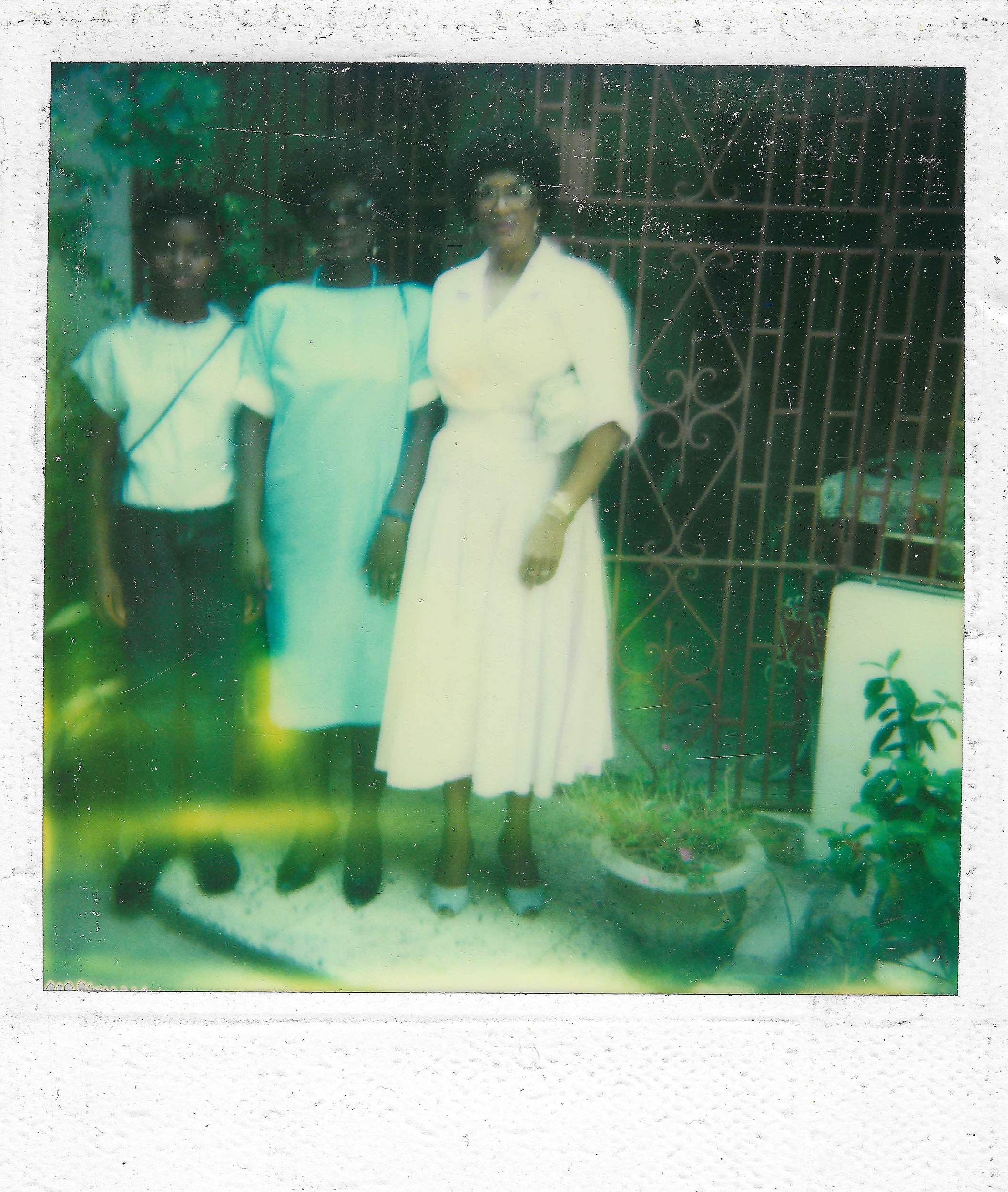
On a trip home, Rose Harvey (right) takes a detour through Kingston and reunites with younger relatives (left) who had migrated to the capital city of Jamaica to support their elders in rural Askenish. Harvey reflected, “Whenever I return home, I make a stop in Kingston. It’s a chance to spend time with family.” This photograph was taken in Kingston, Jamaica, circa the 1980s.
PHOTO COURTESY OF ROSE HARVEY /AMELIA WILHELMINA ELLIOTT-HARVEY ESTATES / NEXTGENRADIO
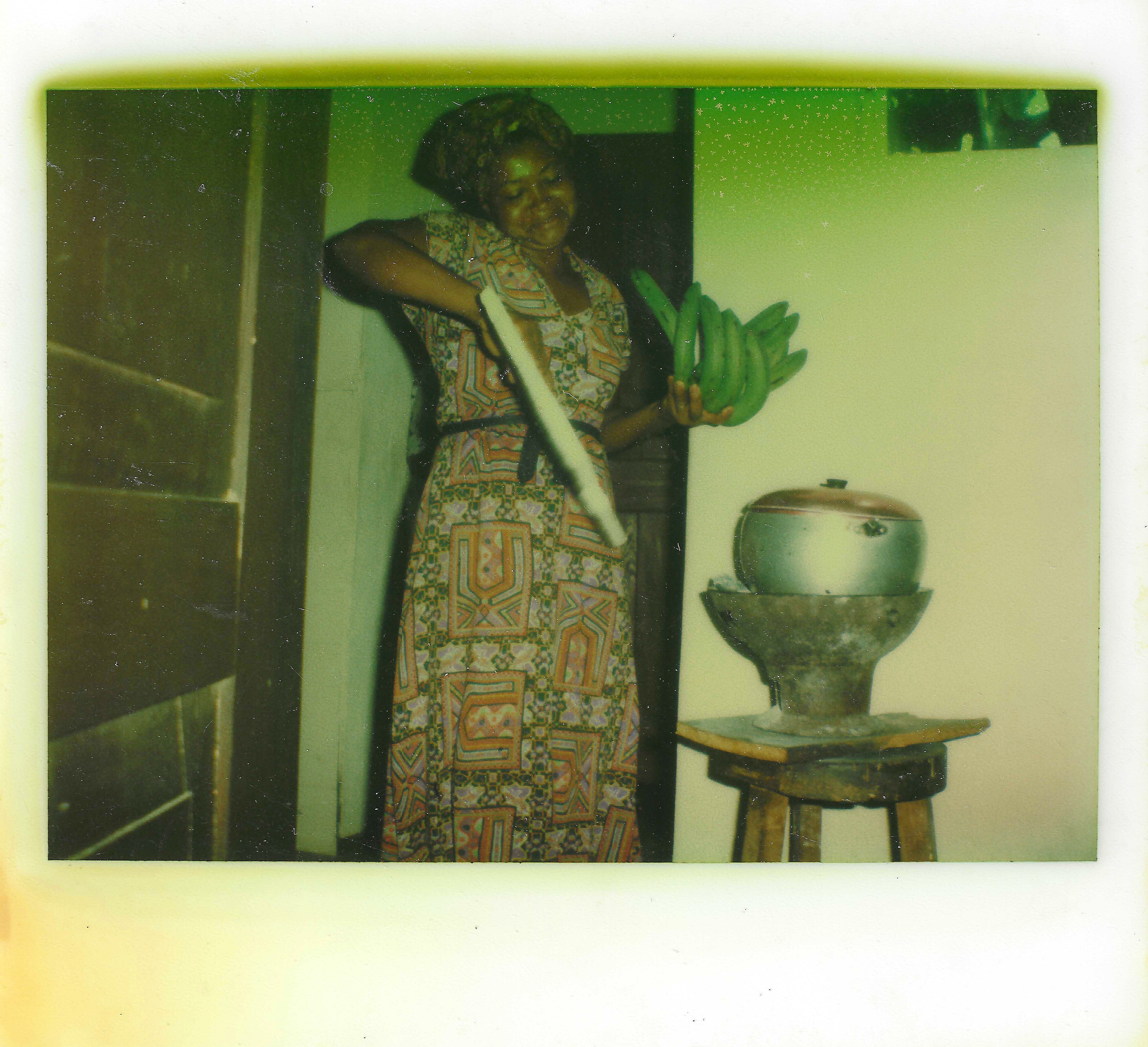
Harvey’s sister-in-law, a Ciboney Taíno woman from a neighboring clan family, prepares green bananas for dinner. With a touch of nostalgia, Rose remarked, “Here’s my sister-in-law, she cooks over a coal pot fire with a banana in her hand. The fire brings back memories. She passed away last year.” This photograph was taken in Askenish, Jamaica, circa the 1980s.
PHOTO COURTESY OF ROSE HARVEY /AMELIA WILHELMINA ELLIOTT-HARVEY ESTATES / NEXTGENRADIO
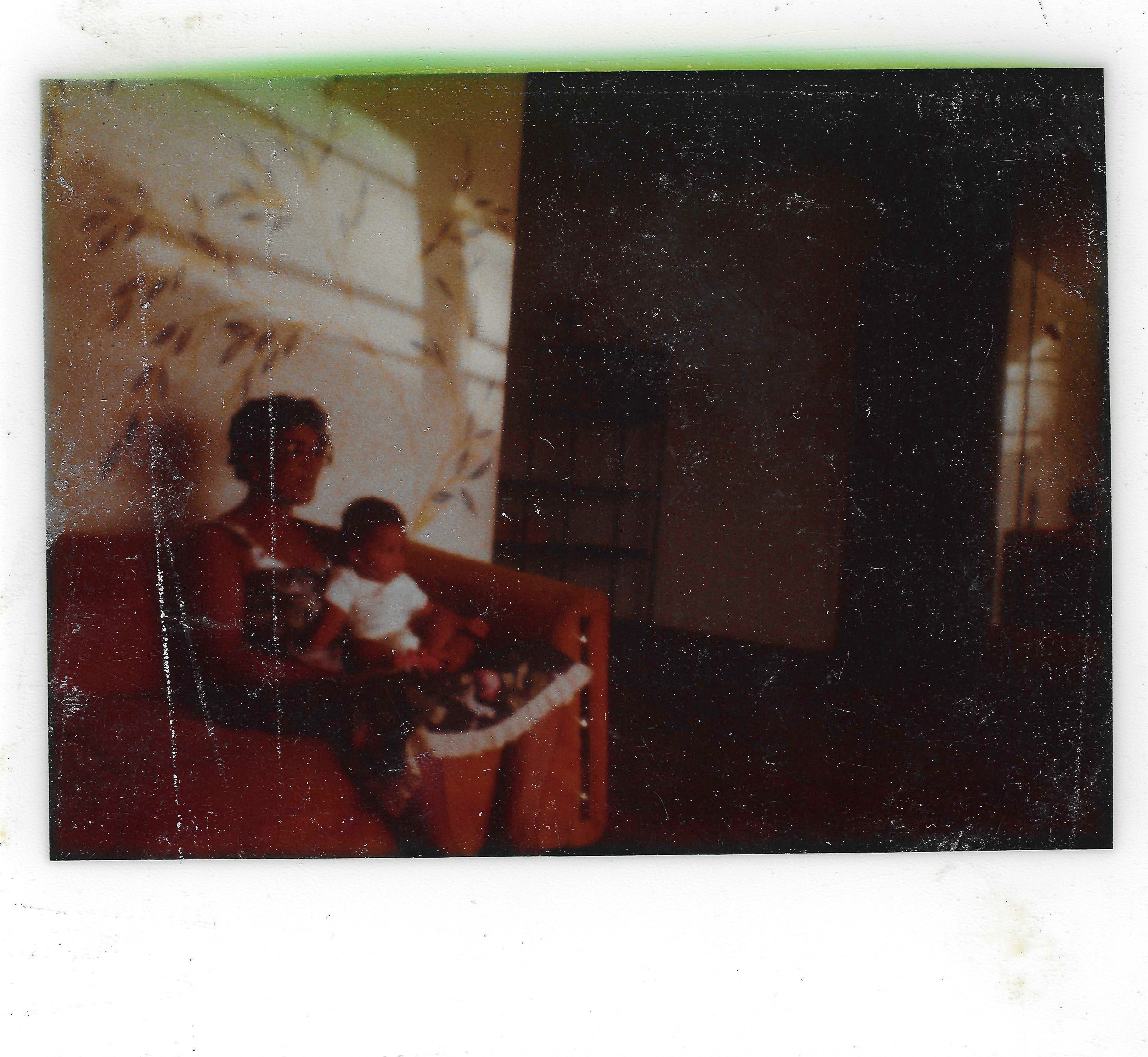
Rose Harvey (left) captures strong bonds formed between generations while also holding a curious family member (right). “I thought the kids, everybody seems to like it, and I show it to them,” noted Harvey. “The pictures.” She used her camera’s timer to get this photo in South Florida in the 1980s.
PHOTO COURTESY OF ROSE HARVEY /AMELIA WILHELMINA ELLIOTT-HARVEY ESTATES / NEXTGENRADIO
She has witnessed the transformation of Askenish over time: nature flourished as the young departed seeking opportunities elsewhere, and familiar establishments in central Askenish, such as the post office, clinic and supermarket shuttered their doors.
Trees grew abundantly, and the land seemed to revert to its untouched beauty. Even amidst the village’s metamorphosis, its essence remained intact. This evolving landscape, captured through Harvey’s lens, tells a tale of change and constancy.
“The land is still there. It cannot be moved,” Harvey laughs. “It’s still there.”
Harvey declares she has “retired from photography, retired from everything.” From her home in Miami, her extensive visual archive remains a testament to her deep connection with Askenish. These photographs transcend time, connecting her with the homeland she cherishes and the memories she holds dear.
“Memory is about home still,” Harvey proclaims. “When I think about home, memory is what come to my mind.”

SHIDEH GHANDEHARIZADEH/ NEXTGENRADIO
“I don’t consider Miami my home; it doesn’t really feel like home. I feel like I’m home once I reach Jamaica. That’s my country. That’s where I was born.”
Disclosure: Rose Harvey is the author’s grandmother.
